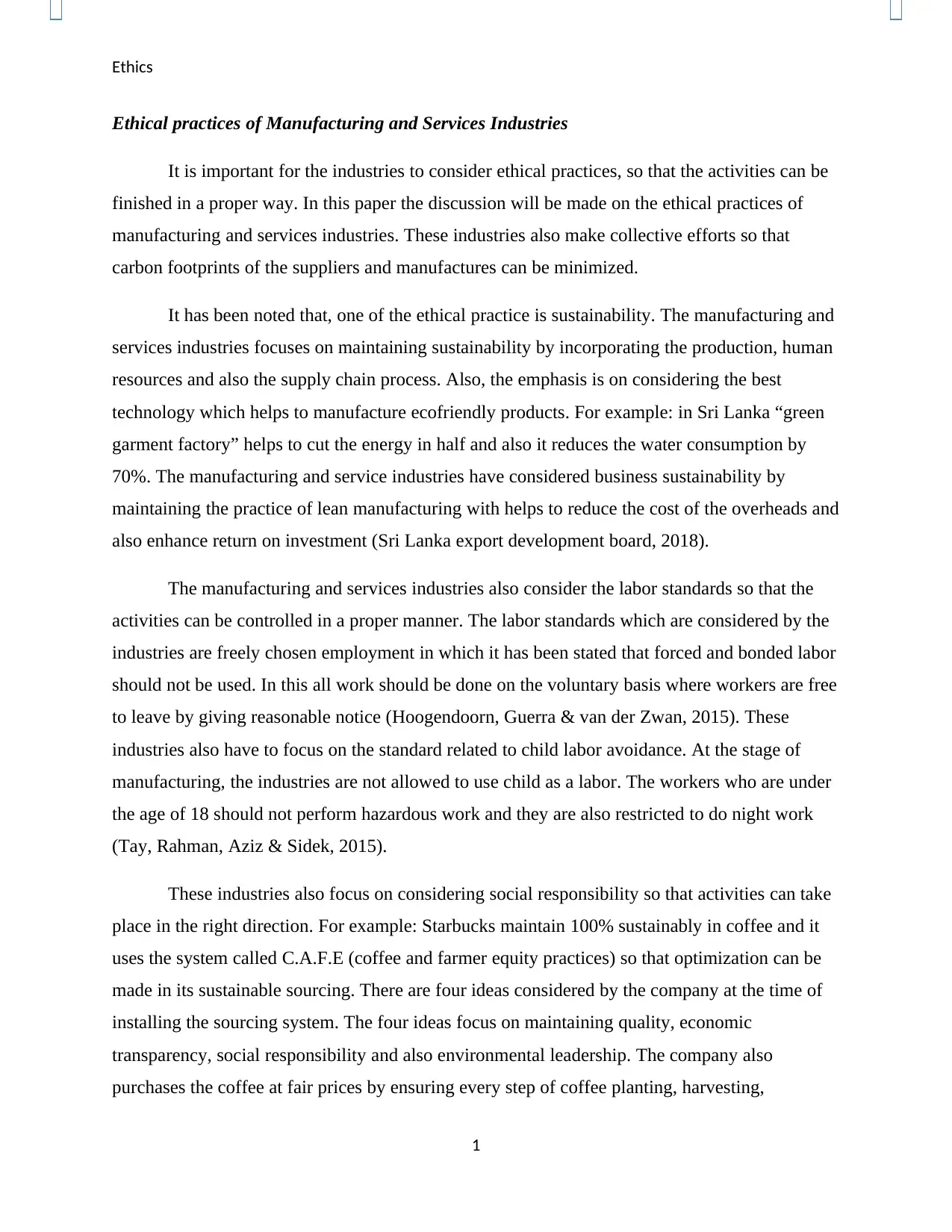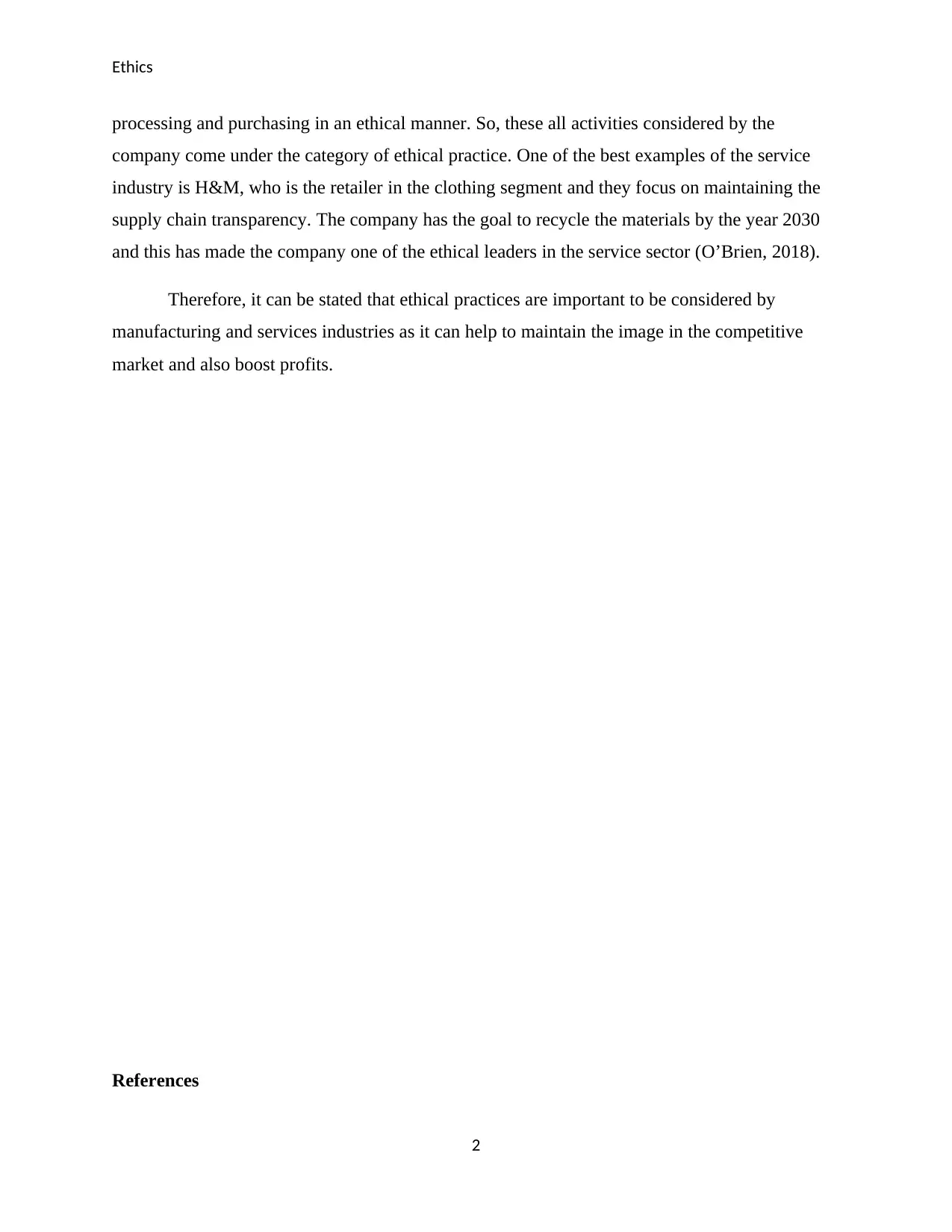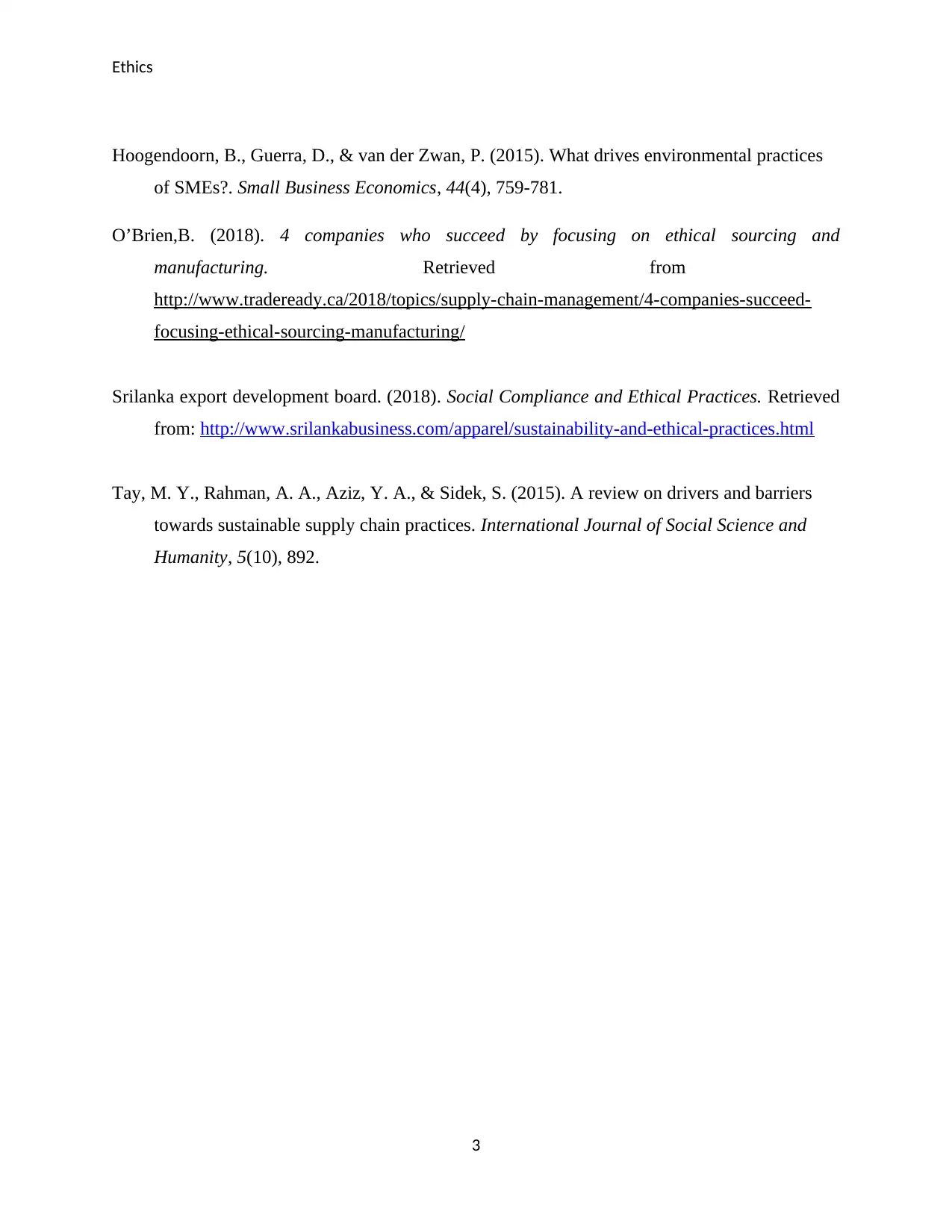Analysis of Ethical Practices in Manufacturing and Services Industries
VerifiedAdded on 2023/04/24
|4
|725
|468
Essay
AI Summary
This essay explores the importance of ethical practices within the manufacturing and service industries, emphasizing the need for sustainability, adherence to labor standards, and social responsibility. It highlights how these industries are increasingly focused on minimizing their carbon footprint and incorporating sustainable practices throughout their production, human resources, and supply chain processes. Examples such as the "green garment factory" in Sri Lanka and Starbucks' C.A.F.E. practices are used to illustrate successful implementation of ethical sourcing and manufacturing. The essay also touches upon the significance of labor standards, including freely chosen employment and child labor avoidance, and concludes by underscoring how ethical practices contribute to a positive image and increased profitability in a competitive market. Desklib offers a variety of resources, including past papers and solved assignments, to aid students in their studies.
1 out of 4











![[object Object]](/_next/static/media/star-bottom.7253800d.svg)